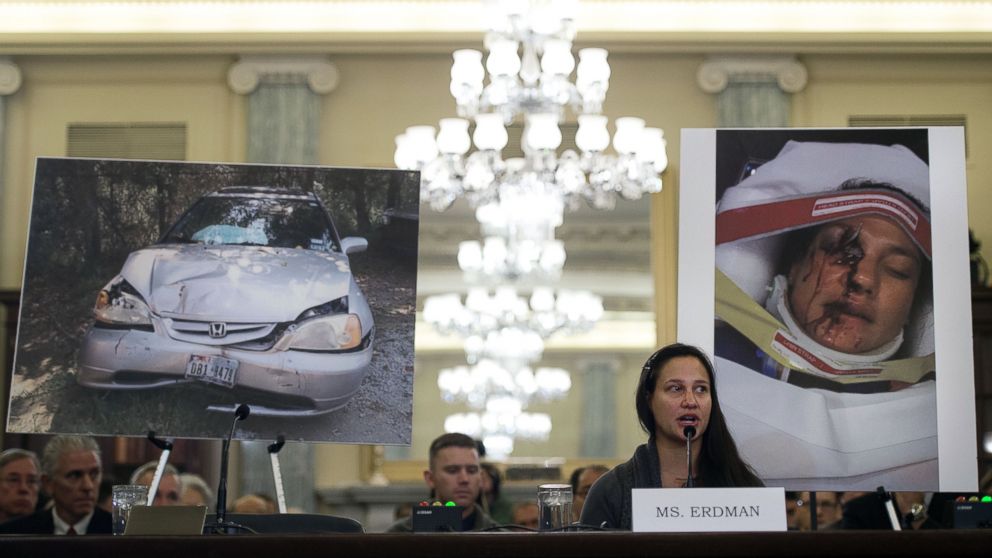Takata Airbag Safety Exec Denies Need for Nationwide Recall
Lawmakers grill the manufacturer after deaths linked to malfunctions.

— -- A vice president of Takata, the airbag company that has been subject to a series of recalls in recent years, told a congressional committee, today he does not believe a nationwide recall of Takata's airbags is necessary.
Takata feels "strongly" that Takata recalls should continue to focus on "regions of high absolute humidity. Our best information supports the view that these regions must be the priority for the replacement of airbags," Hiroshi Shimizu, Takata's senior vice president of global quality assurance, told the Senate Commerce Committee this morning.
The National Highway Safety Transportation Administration has called for a series of regional recalls to be expanded to a nationwide recall to replace Takata airbags installed in cars. Testifying later at the same hearing, NHTSA Deputy Administrator David Friedman called Takata's opposition to nationwide recalls "frustrating" and "unacceptable."
Senators had their first opportunity to question a Takata representative since its airbags were linked to five deaths related to faulty deployments. Sens. Ed Markey, D-Mass., and Richard Blumenthal, D-Conn., sought to link Takata airbags to a sixth death, holding a press conference with a young woman who lost her sister in a 2003 automobile crash in Arizona.
Kim Kopf detailed how her sister Charlene Weaver was killed after a car accident while riding as a passenger in a 2004 Subaru Impreza. Kopf and her family maintain Weaver was killed after she was struck by an airbag in the passenger’s seat.
Kopf noted that the car her sister was a passenger in has yet to be recalled for airbag related reasons though similar models in humid states have been placed on the recall list.
"The American people have a right to know about the story behind this airbag recall," said Sen. Bill Nelson, D-Fla., who chaired the hearing. "That's why we're here today."
Shimizu maintained that the main causes of airbag malfunctions are the age of the airbags, their exposure to humidity, and "potential production issues, which we have worked to identify and address."
Senators grew frustrated with responses from Shimizu at times. "I just think you’re plain wrong here," Markey told Shimizu, on the question of whether a nationwide recall is necessary. "I think your company is making a big mistake in not supporting this recall wholeheartedly."
The hearing grew uncomfortable when Shimizu was pressed by Sen. Dean Heller, D-N.M., to say whether Takata takes full responsible for deaths linked to Takata airbags.
After several long pauses and consultations with his interpreter, Shimizu answered that in three deaths that are no longer under investigation, "My understanding is that our products ... worked abnormally, so that cause[d] accident. From that sense, yes."
So far, automakers including BMW, Chrysler, Ford, General Motors, Honda, Mazda, Mitsubishi, Nissan, Subaru, and Toyota have recalled several million cars because of defective airbags.
ABC News’ Arlette Saenz contributed to this report




